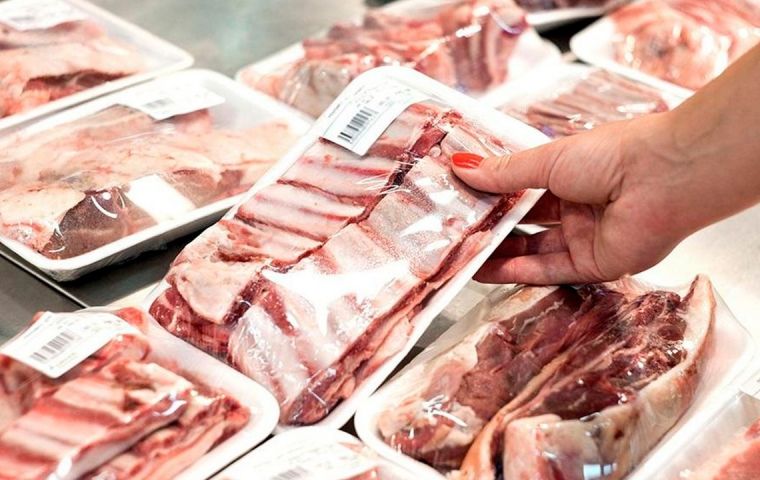MercoPress. South Atlantic News Agency
Chile halts meat imports from Argentine Patagonia
 Should a case of foot-and-mouth disease appear north of the Colorado River, it would compromise the entire Argentina, including Patagonia
Should a case of foot-and-mouth disease appear north of the Colorado River, it would compromise the entire Argentina, including Patagonia The Chilean Government of President Gabriel Boric Font suspended the import of all animals and animal products from Argentina that require foot-and-mouth disease-free certification, in response to the Libertarian administration's decision to deregulate the National Service for Agrifood Health and Quality (Senasa). This move directly affects exports of sheep meat and bulls from Argentina's provinces of Neuquén and Río Negro, jeopardizing millions of dollars in trade.
Argentina's relaxation of a two-decade-old sanitary barrier revokes the recognition it had previously granted to Argentina as a foot-and-mouth disease-free zone without vaccination, Chile's Agricultural and Livestock Service (SAG) argued.
”The Agricultural and Livestock Service (SAG) took note of the entry into force of Resolution No. 460 of 2025 of the National Service for Agrifood Health and Quality (Senasa) of Argentina, which establishes the sanitary conditions for the entry of reproductive material, bone-in meat, and meat products from animals susceptible to foot-and-mouth disease (FMD) from FMD-free areas with vaccination to FMD-free areas without vaccination within Argentine territory,“ it noted.
Hence, ”THE IMPORTATION into Chile from Argentina of all animals and animal products that must comply with the health requirement of a foot-and-mouth disease-free zone without vaccination, recognized by Chile or recognized by the SAG, in their international veterinary certification IS SUSPENDED,” it added.
Bone-in meat is a particular concern because the foot-and-mouth disease virus can survive in the bone marrow. The fear among producers is that this suspension could lead to a domino effect, potentially closing off access to other, larger international markets like the European Union and Japan. Argentina's move was reportedly an attempt to lower meat prices in the Patagonia region, due to its high weight in monthly inflation.
Argentina maintains four foot-and-mouth disease-free zones, three of them without vaccination (Patagonia, Northern Patagonia A, and Calingasta Valleys) and one with vaccination (North Central and Border Belt), all of which are internationally recognized.
To reverse this situation, Senasa must prove that it can guarantee traceability so that bone-in meat from foot-and-mouth disease-free areas where vaccination is carried out does not cross the border.
Should a case of foot-and-mouth disease appear north of the Colorado River, it would compromise the entire Argentina, including Patagonia, it was explained.




Top Comments
Disclaimer & comment rulesCommenting for this story is now closed.
If you have a Facebook account, become a fan and comment on our Facebook Page!